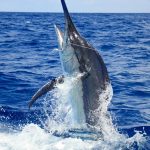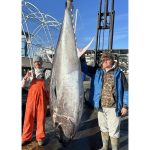Article Courtesy: worldfishing.net | originally published March 06, 2015 | Please click here for original article.
A groundbreaking new study recently conducted by California fishermen, The Nature Conservancy and CSU Monterey Bay indicates that bottom trawling only has a “negligible effect” on the seafloor and fish habitat in certain types of soft sea bottom.
Trawling is continually criticized by environmental advocates for the damage it causes to rocky marine habitats and the long-lived animals that occur in them. However, important questions remain about the extent of any damage to sandy and muddy environments.
During the three-year study, fishermen trawled patches of the ocean floor off Morro Bay. Those areas were analysed by underwater photos and video and compared with nearby areas that were untouched.
Their peer-reviewed work, published in the Fishery Bulletin, found that California’s largely soft-bottom seafloor saw little lasting impacts from trawling with a small-footrope trawl.
The researchers say that their study adds to a growing body of literature from around the world showing trawling impacts are context-dependent – the impacts depend on the type of gear used, the types of habitats trawled and how often trawling occurs.
The scientists point out that their study does not imply that all soft-bottom habitats should be open to trawling; but, with new research and technology, “we can fine-tune our fishery regulations to protect truly vulnerable habitats.”
One of the researchers, Dr. James Lindholm has been studying marine ecosystems for 20 years and this autumn he will conduct a similar experiment off Half Moon Bay using trawling nets of different sizes. Commercial fishermen will also be involved.
Above: Petrale sole, a flatfish caught by trawling on soft-bottom seafloor. Credit: The Nature Conservancy.






